If you’re reading this blog, you’re likely part of banking, payments or some other financial services-adjacent industry. It’s also likely you find it challenging to keep up with the never-ending changes unfolding in fintech.
We’re here to help. A little over a year ago, we shared a list of important books that fearlessly forecasted the future of fintech. It was such a big hit, we decided to put together another list, but this one comprises books that influencers and thought leaders across the industry classify as “must reads” for 2022 (and beyond).

Here it is: a list of fintech, banking and technology books you need to read right now.
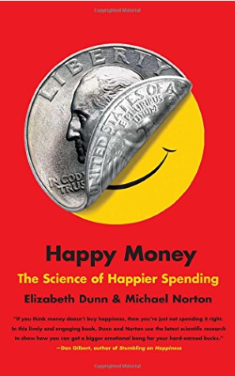
Happy Money
By Elizabeth Dunn and Michael Norton
Alex Johnson, Director of Fintech Research at Cornerstone Advisors and the guy behind the Fintech Takes newsletter, recommends Happy Money, which explains the science of spending while suggesting ways to get more happiness out of your money.
“The purpose of fintech is to help people more efficiently turn money into happiness,” says Johnson. “That's what this book is about. It provides highly specific, research-based insights into the relationship between money and happiness.”
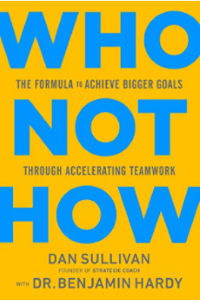
Who Not How
By Dan Sullivan and Benjamin Hardy
Subtitled The Formula to Achieve Bigger Goals Through Accelerating Teamwork, Who Not How encourages readers to reach their full potential by focusing on what they can do, and instead focus on their personal connections.
Author James Robert Lay (Banking on Digital Growth) recommends the book because it’s a reminder that “technology is a capability multiplier for both financial brands and fintechs. Technology has the ability to exponentially multiply our capabilities resulting in exponential growth,” he says. “The challenge, however, is we often get stuck thinking how we might ever achieve exponential growth when all we have done up to this point is grow in a linear direction.”
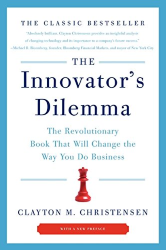
The Innovator’s Dilemma
By Clayton Christensen
Fintech influencer Mike Sigal (CEO of FANVESTOR) found The Innovator’s Dilemma refreshingly different.
“Candidly, I don't read books about 'fintech,'” he says. “Books are too slow to capture the fast pace of change in the industry. That said, my go-to for incumbents — whether a financial service provider, vendor or customer trying to figure out what's going on in financial services and fintech — is probably The Innovator's Dilemma.
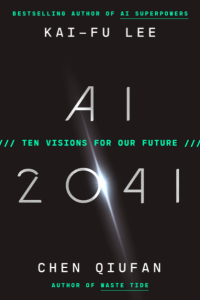
AI 2041: Ten Visions for Our Future
By Kai-Fu Lee and Chen Qiufan
In the next 20 years, much of our human life will be changed due to artificial intelligence. Authors Kai-Fu Lee and Chen Qiufan share the eye-opening AI possibilities that we may see by 2041(including the prospect that AI might trigger massive job relocation and displacement across numerous industries).
Chris Skinner, the “Non-Executive Director” at 11:FS recommends AI 2041 “ because we all know that AI and robotics [are] about to change our world. The question is: what does this mean for jobs and the future of humanity? This book gives some great insights into our world two decades from now, and is also hugely readable.”
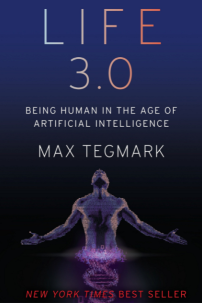
Life 3.0: Being Human in the Age of Artificial Intelligence
By Max Tegmark
AI also takes center stage in Life 3.0, a book empowering readers to think about the kind of future they want so that together we can continue to use the technology to benefit everyone.
For BillGO CMO Mary Anne Keegan, Tegmark’s book tackles some important philosophical conversations. “Will AI redefine what it means to be human? As science continues to gather knowledge faster than society gathers wisdom, AI has the potential to transform our future more than any other technology today,” she says. “As the power of technology grows, it’s the wisdom with which we manage it that will define us and our future.”
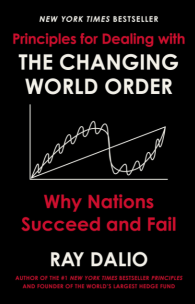
Principles for Dealing with the Changing World Order
By Ray Dalio
Billionaire author Ray Dalio studies the patterns and histories of major empires to explain why some nations fail and others succeed.
Jason Mikula, author of Fintech Business Weekly, says, “While [Dalio’s] book isn't explicitly about banking or fintech, the analysis of historical periods of political and economic instability and change help us understand the rapidly-changing present and may prove a guide to the future.”
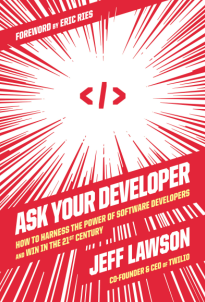
Ask Your Developer
By Jeff Lawson
Companies need the best software to attract clients and function efficiently in the digital era. Lawson’s book is a practical guide to help business leaders, product managers, technical leaders, software developers, and executives build great digital products and experiences.
Dion Lisle, Director of Corporate Ventures at Huntington National Bank, says Lawson’s book “blew my preconceived concepts about making new products.” explaining that what he was taught (create market and product documents and then hand them off to the dev team) may be wrong after all. After reading Ask Your Developer, he learned: “Just describe the problem and let the devs develop a solution. It is faster and better. Brilliant in the simplicity.”
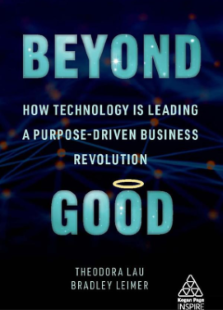
Beyond Good
By Bradley Leimer and Theodora Lau
Beyond Good teaches leaders how to make a profit while also delivering on sustainable and societal development goals — or, more to the point, how they can do well by doing good. It includes interviews with policy makers, executives, professionals and others discussing steps they took to make the world a better place and actions others can follow to do the same.
Steven Ramirez, CEO of Beyond the Arc, classifies Beyond Good as a must-read because “strategy is about having a vision for the future. If you're charting a course for your company in 2022, this book helps confirm your True North.”
Bank-industry columnist Mary Wisniewski, is also a fan, saying — for those seeking inspiration — “this is the book for you. It will help you dream up all kinds of ideas.”
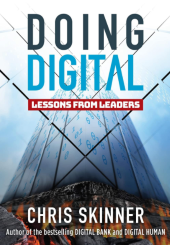
Doing Digital: Lessons from Leaders
By Chris Skinner
Finastra executive Lisa Kuhn Phillips is a big fan of Doing Digital, which includes a series of in-depth interviews and commentaries mapping out the world of digital banking.
“Every chapter of Doing Digital is relevant to anyone in the financial services arena,” she says, “certainly bankers on the journey and fintechs who partner. You will nod your head, highlight half the book, and learn. This is the book from a financial service technology perspective. The easiest read you’ll re-read and reference.”
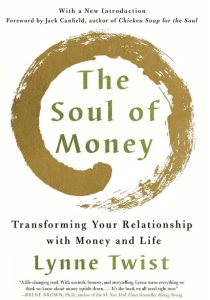
The Soul of Money
By Lynne Twist
And
The Psychology of Money
By Morgan Housel
Lynne Twist’s book encourages readers to transform their relationship with money by aligning their spending habits with their life goals. For Jason Henrichs, CEO of Alloy Labs Alliance, The Soul of Money helps us rethink how we think of money. “Many — probably most of us — have a relationship with money that is based on a set of inherited beliefs,” he says. “Twist breaks down a number of misguided beliefs and myths that distort our relationship with money.”
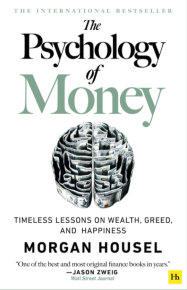
Henrichs finds The Psychology of Money — which looks at the real-life ways people use their money — appealing for other reasons. “Where Lynne Twist takes a soul searching, philosophical grounding on how we relate to money, Housel breaks down how we interact with money on a day-to-day basis and the traps we fall into,” he says.
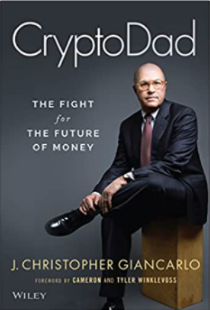
CryptoDad
By Christopher Giancarlo
And
The Three-Box Solution
By Vijay Govindarajan
These two recommendations come to us courtesy of Penny Crosman, Executive Editor of Technology at American Banker.
CryptoDad provides readers with insight on how digital change is impacting the economic regulatory responses of digital transformation while, The Three-Box Solution gives leaders a simple vocabulary and set of tools for managing and measuring innovation across all levels of the organization.
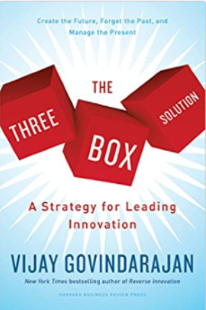
“I’m reading both of these books now,” says Crossman. “CryptoDad for a regulator's take on digital assets and The Three-Box Solution for its advice on innovation. Some bankers have told me they've read The Three-Box Solution and are making decisions about the future based on its principles.”
Next Steps
Got a favorite fintech tome you recommend to others? We want to know: share your favorite titles via our social links below.
In the meantime, because March is Women's History Month in the U.S., it’s an excellent time to add BillGO’s most recent whitepaper, The State of Play for Women and Paying Bills — which looks at women’s role in the U.S. economy — to your reading list. Download it now.
-4.png)

